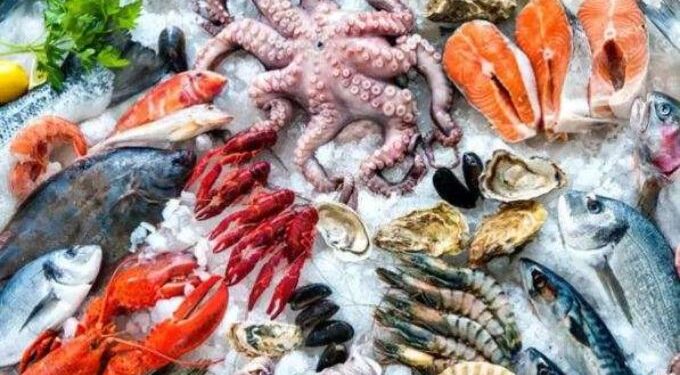India’s marine export industry has entered a new era with the signing of the Comprehensive Economic and Trade Agreement (CETA) between India and the United Kingdom on July 24, 2025.
The milestone agreement, witnessed by Prime Ministers Shri Narendra Modi and Sir Keir Starmer, eliminates import duties across 99% of UK tariff lines—including a wide range of seafood commodities.
This landmark pact grants immediate 100% duty-free access to Indian shrimp, squid, pomfret, lobsters, and other marine products under key HS Codes 03, 15, 1603/1604/1605, and 23. Previously subject to tariffs ranging up to 21.5%, these products can now compete on equal footing with global players like Vietnam and Singapore—both of whom already benefit from UK FTAs.
With $7.38 billion worth of seafood exports in FY 2024–25, India has steadily expanded its footprint in over 130 countries. Yet, despite its vast production capacity, its share in the UK seafood market stood at a mere 2.25%. Frozen shrimp dominated UK-bound shipments, contributing $80 million of the $104 million total.
CETA is expected to shift this trajectory. Industry forecasts suggest a 70% jump in exports to the UK, driven by enhanced cost competitiveness and market access. Coastal states, including Andhra Pradesh, Kerala, Tamil Nadu, Maharashtra, and Gujarat, are poised to harness the opportunity, with increased focus on meeting UK SPS standards and boosting traceability protocols.
The agreement strengthens not only India’s seafood revenue stream but also the livelihoods of 28 million people linked to fisheries. With a pivot toward high-end value-added goods, this duty-free access repositions India as a formidable player in sustainable global marine trade.
CETA’s implementation highlights India’s commitment to inclusive growth, trade equity, and strategic diversification—laying the groundwork for long-term leadership in the international seafood arena.





























